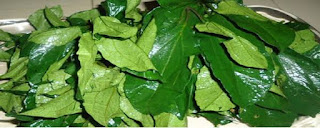TEETHING IN CHILDREN
What is Teething?
The process by which an infant's first teeth emerges sequentially in pairs through the gums is called Teething. First teeth are also referred to as "baby teeth" or "milk teeth".
Teeth doesn't just appear in babies, their eruption is caused is caused by some hormones in the bodyear. These hormones cause some cells in the gums to die and separate, thus allowing the teeth to come through.
When is my baby/child going to grow teeth, he/she is well over 6 months?
Generally, there is no fixed time for Teething in children. However, Teething usually begins between 6 months and 10 months of age, depending on individual body system. Some infants are early starters, they start Teething as early as 3 months.
Sequence: Babies typically get their teeth in pairs, usually the kindle two bottom teeth emerges first, followed by the two above in a month time or later.
The typical pattern of emergence is:
1. Lower central incisors (2) at approximately 6 months
2. Upper central incisors (2) at approximately 8 months
3. Upper lateral incisors (2) at approximately 10 months
4. Lower lateral incisors (2) at approximately 10 months
5. First molars (4) at approximately 14 months
6. Canines (4) at approximately 18 months
7. Second molars (4) at approximately 2 - 3 years
Symptoms of Teething in children
Teething as a process without a doubt is usually accompanied with some level of pains in children, although this pain is not always severe in some children. The pain is caused by the soreness and swelling of the gums which occur before a tooth comes through. Some signs come up in children between 3 to 5 days before the emergence of the tooth. These signs disappear as soon as the tooth emerges. Some of the signs are as follows:
- Increase in the urge to chew
- Excessive drooling
- Biting
- Change in eating habits
- Crankiness
- Rubbing of gums
- Restlessness
- Sleeplessness
- Swollen gums
It is very important to note that while some babies have Teething signs before the emergence of the teeth, others show no signs at all.
Some of the misconceptions about Teething in babies
There is ano age long misconception about Teething that Teething causes fever or diarrhoea in children. This is not outrightly true. Teething does not cause diarrhoea, although it can lead to a slight elevated temperature in children, but not into the range of fever 37.8°c - 38.3°c.
If your child's temperature rises to fever range, and you observe diarrhoea, your child might be suffering from chronic infections. Do not dismiss the symptoms by saying they are as a result of Teething. Seeking a prompt medical advice for proper diagnosis and treatment.
Treatment
As a mother, do not get frustrated because of the Teething saga. It is one of the developmentallergic phases that your child must pass through. Get up! Make it fun.
- Add child Teething ring, a clean frozen flannel can help your baby ease the pains that come with Teething.
- Your gentle rUbuntu on his/her affected hums with your clean finger can go a long way in easing that pain.
- Cuddle him/her, more skin to skin contact with your adorable will also help him/her to shift his /her mind away from the pain, thereby reliving the pain.
- You can also administer paracetamol to help alleviate the pains. Do not exceed the stated dosage.






Comments
Post a Comment